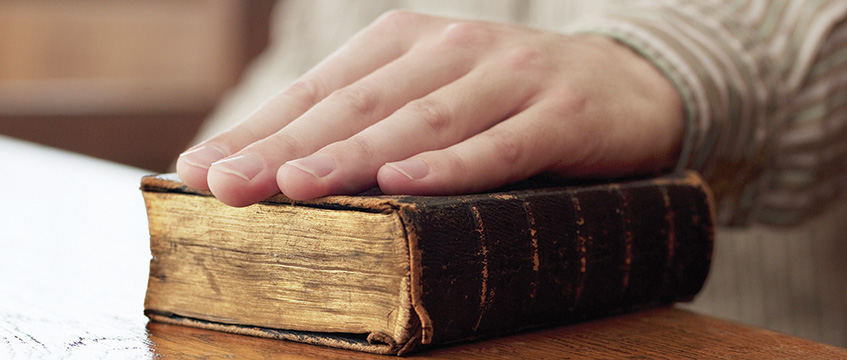Decisions on the duties of expert witnesses come thick and fast – what lessons can be learned? ask Guy Fetherstonhaugh QC.
Expert witnesses have not been enjoying a good press recently. A couple of years ago, in The Governors and Company of the Bank of Ireland v Watts Group plc [2017] EWHC 1677 (TCC), Coulson J made a number of very detailed criticisms of the quantity surveyor instructed to give evidence on behalf of the claimants, finding that he was not a properly independent witness, having derived the vast majority of his work (and fees) from them, and having no real appreciation of the relevant duties (“For him, it might be said that the Ikarian Reefer was a ship that passed in the night.”)
Then last June, in ICI Ltd v Merit Merrell Technology Ltd [2018] EWHC 1577 (TCC), Fraser J criticised all the claimant’s expert evidence (across a number of disciplines, including valuation), saying:
“…my considered conclusion on each of ICI’s experts is that their evidence is not sufficiently independent of the party who has instructed them, and that the evidence of their opposite numbers is to be preferred”. He went on to express the hope that that evidence, as well as that before Coulson J in Bank of Ireland should not turn into a “worrying trend”.
But the trend has continued. Last November, in Buckingham Homes Ltd v Rutter [2018] EWHC 3917 (Ch), a deputy judge castigated a party (and their expert) for putting in evidence from a forensic accountant in the form of a witness statement, but which in reality was an expert report for which no permission had been given, and which contained no statement of truth or other safeguard. The judge had no hesitation in striking out the statement in its entirety.
Serious consequences
Next, on 19 March this year, the Court of Appeal heard an appeal against a sentence imposed for contempt of court in Liverpool Victoria Insurance Company Ltd v Zafar [2019] EWCA Civ 392. The appellant insurance company was seeking to increase the sentence of six months imprisonment, suspended for two years, which it considered too lenient. The respondent was a general practitioner who produced, in what the judge referred to as “a report writing factory” as many as 5,000 expert reports a year for personal injury claimants. In the instant case, he had altered a diagnosis and prognosis for a whiplash injury, as directed by the claimant’s solicitor, without re-examining the claimant, changing his view from full recovery to continuing neck pain. He had then been found to have lied in court concerning the process by which his report had been changed.
The Court of Appeal observed that the deliberate or reckless making of a false statement in a document verified by a statement of truth will usually be so inherently serious that nothing other than an order for committal to prison will be sufficient. In the case of an expert witness, the fact that he or she is acting corruptly and makes the relevant false statement for reward, will make the case even more serious; but it will be a serious contempt of court even if the expert witness acts from an indirect financial motive (such as a desire to obtain more work from a particular solicitor), or without any financial motivation at all, and even if the expert witness stands to gain little financial reward by it. This is so because of the reliance placed on expert witnesses by the court, and because of the corresponding importance of the overriding duty which experts owe to the court. Accordingly, the court had no hesitation in declaring the sentence to be unduly lenient.
These decisions come on top of others last year where chartered surveyor expert witnesses were castigated for failures with regard to the use of conditional fee agreements. First, in Gardiner & Theobald LLP v Jackson (VO) [2018] UKUT 253 (LC); [2018] PLSCS 143 a surveyor acting in the dual role did not disclose either to the Valuation Tribunal or to the Upper Tribunal (Lands Chamber) the fact that he had been instructed on a conditional fee agreement. The decision of the president, Holgate J, provides a thorough analysis of the rationale for the rule and questions whether there should be any exemption from it, even before the tribunals.
Secondly, in Merlin Entertainments Group Ltd v Cox (VO) [2018] UKUT 406 (LC); [2019] PLSCS 3, the president of the same tribunal decided that the duties of chartered surveyors extended to the information and data assembled by them to assist a court or tribunal in deciding an issue, even where they were not giving evidence as experts.
Importance of independence
Underpinning these various criticisms is the proposition that the right of expert witnesses to give their opinion to tribunals, based on their training and experience, should be seen as a considerable privilege that must not be abused.
The exercise of that privilege depends on experts occupying a superior position to the client, on whose behalf the evidence is given, and accordingly doing their best to assist the tribunal by giving honest and independent evidence without regard to how that might affect the interests of the client. This is in contrast to witnesses of fact, who give evidence on matters in their knowledge that are usually objectively verifiable and may be tested accordingly.
The RICS has been engaged in training and accrediting expert witnesses for many years now, and the vast majority of its members would regard it as unthinkable to depart from the rules which the institution has laid down concerning the standards for those providing reports to courts and tribunals. The very few who find their loyalties diverted in other directions should heed the growing impatience of the courts with such transgressors, illustrated by the cases referred to above.
Main image © Ojo Images/Rex/Shutterstock
Guy Fetherstonhaugh QC is a barrister at Falcon Chambers








